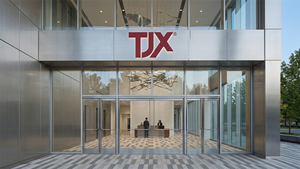Please replace the release issued January 24, 2025 at 9:25am ET with the following corrected version due to multiple revisions.
The updated release reads:
TOP RANKING FIRST TRUST RBA AMERICAN INDUSTRIAL RENAISSANCE® ETF REACHES NEW MILESTONES IN GROWTH AND PERFORMANCE OVER ITS 10+ YEAR HISTORY
First Trust Advisors L.P. (“First Trust”), a leading ETF provider and asset manager, announced that the First Trust RBA American Industrial Renaissance® ETF (NASDAQ: AIRR) has reached over $3 billion in net assets as of 1/6/2025 and continues to be a top performing fund. AIRR seeks investment results that correspond generally to the price and yield (before the fund’s fees and expenses) of an equity index called the Richard Bernstein Advisors American Industrial Renaissance® Index (the “index”). The index is designed to measure the performance of small and mid-cap U.S. companies in the industrial and community banking sectors. These companies are directly involved in manufacturing, related infrastructure, and banking, including regional banks from U.S. states traditionally known as manufacturing hubs.
Richard Bernstein Advisors (“RBA”) believes the U.S. industrial sector may continue gaining global market share over the next decade as a result of deglobalization, potentially making the American Industrial Renaissance® an investment theme for many years to come.
“The American Industrial Renaissance has proven to be an exceptionally successful investment theme, as evidenced AIRR surpassing $3 billion in net assets,” said Richard Bernstein, CEO, CIO at Richard Bernstein Advisors. “Despite this achievement, the critical need for the U.S. to invest in manufacturing—both to safeguard economic independence and bolster national security—remains widely underappreciated. This underscores the American Industrial Renaissance's potential as a compelling long-term investment opportunity.”
“In our view, one of the most intriguing aspects of this theme is how little attention it has received from investors,” said Ryan Issakainen, CFA, Senior Vice President and ETF Strategist at First Trust. “Not only in light of its strong performance over the past decade, but more importantly, how well we believe it’s positioned for the next several years.”
AIRR Performance Highlights as of 12/31/2024:
- 1-year average annual total return of 33.43%, based on net asset value (NAV), versus 17.47% for the S&P 500® Industrials Index.
- Since its inception in March 2014, AIRR has achieved an average annual total return of 13.56%, based on NAV, outperforming the S&P 500® Industrials Index which had a total return of 10.80% over the same period.
- Largest and fastest-growing ETF in Morningstar’s Industrials category, based on total net assets.1
- 5-Star Overall Morningstar RatingTM, among 44 funds in the Industrials category. This fund was rated 5 stars/44 funds (3 years), 5 stars/42 funds (5 years), 5 stars/32 funds (10 years) based on risk adjusted returns.
- #1 performing fund in Morningstar’s Industrials category, ranking #1/41 funds (1 year), #1/32 funds (5 years), #1/25 funds (10 years) and #1/25 funds (since fund inception).
- AIRR has outperformed the S&P 500® Index in the 1-year, 5-year, and 10-year time periods based on NAV despite not holding information technology or large cap growth companies.
Performance (%) |
1 Year |
5 Year |
10 Year |
Since Fund Inception |
Net Asset Value* |
33.43 |
21.70 |
15.70 |
13.56 |
Market Price* |
33.24 |
21.70 |
15.69 |
13.56 |
Richard Bernstein Advisors American Industrial Renaissance® Index** |
34.45 |
22.61 |
16.57 |
14.42 |
S&P 500® Industrials Index** |
17.47 |
12.03 |
10.75 |
10.80 |
Russell 2500® Index** |
12.00 |
8.77 |
8.85 |
8.50 |
S&P 500® Index** |
25.02 |
14.53 |
13.10 |
13.19 |
Performance data quoted represents past performance. Past performance is not a guarantee of future results and current performance may be higher or lower than performance quoted. Investment returns and principal value will fluctuate and shares when sold or redeemed, may be worth more or less than their original cost. You can obtain performance information which is current through the most recent month-end by visiting www.ftportfolios.com.
Inception Date: 3/10/2014. Total Expense Ratio: 0.70%.
*NAV returns are based on the fund’s net asset value which represents the fund’s net assets (assets less liabilities) divided by the fund’s outstanding shares. Market Price returns are determined by using the midpoint of the national best bid offer price ("NBBO") as of the time that the fund's NAV is calculated. Returns are average annualized total returns.
**Performance information for each listed index is for illustrative purposes only and does not represent actual fund performance. Indexes do not charge management fees or brokerage expenses, and no such fees or expenses were deducted from the performance shown. Indexes are unmanaged and an investor cannot invest directly in an index.
1Source: Morningstar, based on net assets under management from AIRR inception date of 3/10/2014 through 12/31/2024.
For more information about First Trust, please contact Ryan Issakainen at (630) 765-8689 or RIssakainen@FTAdvisors.com.
About First Trust
First Trust is a federally registered investment advisor and serves as the fund’s investment advisor. First Trust and its affiliate First Trust Portfolios L.P. (“FTP”), a FINRA registered broker-dealer, are privately held companies that provide a variety of investment services. First Trust has collective assets under management or supervision of approximately $256 billion as of December 31, 2024, through unit investment trusts, exchange-traded funds, closed-end funds, mutual funds and separate managed accounts. First Trust is the supervisor of the First Trust unit investment trusts, while FTP is the sponsor. FTP is also a distributor of mutual fund shares and exchange-traded fund creation units. First Trust and FTP are based in Wheaton, Illinois. For more information, visit https://www.ftportfolios.com.
About Richard Bernstein Advisors
Richard Bernstein Advisors LLC is a global macro multi-asset investment manager with a broad range of products across global equity and fixed income markets. Founded in 2009, RBA manages approximately $16 billion in client assets today, including several prominent pension plans, corporations and foundations, as well as financial advisors and high net worth individuals. RBA acts as sub-advisor for the Eaton Vance Richard Bernstein Equity Strategy Fund and the Eaton Vance Richard Bernstein All-Asset Strategy Fund and offers income and theme-oriented unit trusts and ETFs through First Trust. RBA's investment insights as well as further information about the firm and products can be found at www.rbadvisors.com.
You should consider a fund’s investment objectives, risks, and charges and expenses carefully before investing. Contact First Trust Portfolios L.P. at 1-800-621-1675 or visit www.ftportfolios.com to obtain a prospectus or summary prospectus which contains this and other information about a fund. The prospectus or summary prospectus should be read carefully before investing.
Risk Considerations
Unlike mutual funds, shares of the fund may only be redeemed directly from a fund by authorized participants in very large creation/redemption units. If a fund's authorized participants are unable to proceed with creation/redemption orders and no other authorized participant is able to step forward to create or redeem, fund shares may trade at a premium or discount to a fund's net asset value and possibly face delisting and the bid/ask spread may widen.
Community banks were significantly impacted by the decline in the subprime mortgage lending market in the U.S. which brought about legislative and regulatory changes, changes in short-term and long-term interest rates, inflation and changes in government monetary and fiscal policies. Unlike larger national or other regional banks that are more geographically diversified, a community bank's financial performance may be highly dependent upon the business environment in certain geographic regions of the U.S. and may be adversely impacted by any downturn or unfavorable economic or employment developments in its local market and the U.S. as a whole.
Current market conditions risk is the risk that a particular investment, or shares of the fund in general, may fall in value due to current market conditions. For example, changes in governmental fiscal and regulatory policies, disruptions to banking and real estate markets, actual and threatened international armed conflicts and hostilities, and public health crises, among other significant events, could have a material impact on the value of the fund's investments.
A fund is susceptible to operational risks through breaches in cyber security. Such events could cause a fund to incur regulatory penalties, reputational damage, additional compliance costs associated with corrective measures and/or financial loss.
Depositary receipts may be less liquid than the underlying shares in their primary trading market and distributions may be subject to a fee. Holders may have limited voting rights, and investment restrictions in certain countries may adversely impact their value.
Equity securities may decline significantly in price over short or extended periods of time, and such declines may occur in the equity market as a whole, or they may occur in only a particular country, company, industry or sector of the market.
An index fund will be concentrated in an industry or a group of industries to the extent that the index is so concentrated. A fund with significant exposure to a single asset class, or the securities of issuers within the same country, state, region, industry, or sector may have its value more affected by an adverse economic, business or political development than a broadly diversified fund.
A fund may be a constituent of one or more indices or models which could greatly affect a fund's trading activity, size and volatility.
There is no assurance that the index provider or its agents will compile or maintain the index accurately. Losses or costs associated with any index provider errors generally will be borne by a fund and its shareholders.
Industrials and producer durables companies are subject to certain risks, including the general state of the economy, intense competition, consolidation, domestic and international politics, excess capacity and consumer demand and spending trends. They may also be significantly affected by overall capital spending levels, economic cycles, technical obsolescence, delays in modernization, labor relations, and government regulations.
Market risk is the risk that a particular security, or shares of a fund in general may fall in value. Securities are subject to market fluctuations caused by such factors as general economic conditions, political events, regulatory or market developments, changes in interest rates and perceived trends in securities prices. Shares of a fund could decline in value or underperform other investments as a result. In addition, local, regional or global events such as war, acts of terrorism, spread of infectious disease or other public health issues, recessions, natural disasters or other events could have significant negative impact on a fund.
A fund faces numerous market trading risks, including the potential lack of an active market for fund shares due to a limited number of market makers. Decisions by market makers or authorized participants to reduce their role or step away in times of market stress could inhibit the effectiveness of the arbitrage process in maintaining the relationship between the underlying values of a fund's portfolio securities and a fund's market price.
An index fund's return may not match the return of the index for a number of reasons including operating expenses, costs of buying and selling securities to reflect changes in the index, and the fact that a fund's portfolio holdings may not exactly replicate the index.
A fund and a fund's advisor may seek to reduce various operational risks through controls and procedures, but it is not possible to completely protect against such risks. The fund also relies on third parties for a range of services, including custody, and any delay or failure related to those services may affect the fund's ability to meet its objective.
A fund that invests in securities included in or representative of an index will hold those securities regardless of investment merit and the fund generally will not take defensive positions in declining markets.
High portfolio turnover may result in higher levels of transaction costs and may generate greater tax liabilities for shareholders.
The market price of a fund's shares will generally fluctuate in accordance with changes in the fund's net asset value ("NAV") as well as the relative supply of and demand for shares on the exchange, and a fund's investment advisor cannot predict whether shares will trade below, at or above their NAV.
Securities of small- and mid-capitalization companies may experience greater price volatility and be less liquid than larger, more established companies.
Trading on an exchange may be halted due to market conditions or other reasons. There can be no assurance that a fund's requirements to maintain the exchange listing will continue to be met or be unchanged.
First Trust Advisors L.P. (FTA) is the adviser to the First Trust fund(s). FTA is an affiliate of First Trust Portfolios L.P., the distributor of the fund(s).
The information presented is not intended to constitute an investment recommendation for, or advice to, any specific person. By providing this information, First Trust is not undertaking to give advice in any fiduciary capacity within the meaning of ERISA, the Internal Revenue Code or any other regulatory framework. Financial professionals are responsible for evaluating investment risks independently and for exercising independent judgment in determining whether investments are appropriate for their clients.
Richard Bernstein Advisors and Richard Bernstein Advisors American Industrial Renaissance® Index ("Index") are trademarks and trade names of Richard Bernstein Advisors ("RBA"). The Fund is not sponsored, endorsed, sold or promoted by RBA and RBA makes no representation or warranty, express or implied, to the owners of the Fund or any member of the public regarding the advisability of trading in the Fund. RBA's only relationship to First Trust is the licensing of certain trademarks and trade names of RBA and of the Index, which is determined and composed by RBA without regard to First Trust or the Fund. RBA has no obligation to take the needs of First Trust or the owners of the Fund into consideration in determining or composing the Index. RBA is not responsible for and has not participated in the determination of the timing of, prices at, or quantities of the Fund to be listed or in the determination or calculation of the equation by which the Fund is to be converted into cash. RBA has no obligation or liability in connection with the administration, marketing or trading of the Fund.
^The Morningstar Rating™ for funds, or “star rating”, is calculated for managed products (including mutual funds, variable annuity and variable life subaccounts, exchange-traded funds, closed-end funds, and separate accounts) with at least a three-year history. Exchange-traded funds and open-ended mutual funds are considered a single population for comparative purposes. It is calculated based on a Morningstar Risk Adjusted Return measure that accounts for variation in a managed product’s monthly excess performance, placing more emphasis on downward variations and rewarding consistent performance. The Morningstar Rating does not include any adjustment for sales loads. The top 10% of products in each product category receive 5 stars, the next 22.5% receive 4 stars, the next 35% receive 3 stars, the next 22.5% receive 2 stars, and the bottom 10% receive 1 star. The Overall Morningstar Rating for a managed product is derived from a weighted average of the performance figures associated with its three-, five-, and 10-year (if applicable) Morningstar Rating metrics. The weights are: 100% three-year rating for 36-59 months of total returns, 60% five-year rating/40% three-year rating for 60-119 months of total returns, and 50% 10-year rating/30% five-year rating/20% three-year rating for 120 or more months of total returns. While the 10-year overall star rating formula seems to give the most weight to the 10-year period, the most recent three-year period actually has the greatest impact because it is included in all three rating periods. ©2025 Morningstar, Inc. All Rights Reserved. The Morningstar Rating™ information contained herein: (1) is proprietary to Morningstar; (2) may not be copied or distributed; and (3) is not warranted to be accurate, complete or timely. Neither Morningstar nor its content providers are responsible for any damages or losses arising from any use of this information. Past performance is no guarantee of future results.
S&P 500® Industrials Index - The Index is an unmanaged index which includes the stocks in the industrials sector of the S&P 500 Index.
Russell 2500® Index - The Index is an unmanaged market-cap weighted index that includes the smallest 2,500 companies from the Russell 3000 Index.
S&P 500® Index - The Index is an unmanaged index of 500 companies used to measure large-cap U.S. stock market performance.
View source version on businesswire.com: https://www.businesswire.com/news/home/20250124768701/en/
Contacts
Ryan Issakainen
First Trust
(630) 765-8689
RIssakainen@FTAdvisors.com





